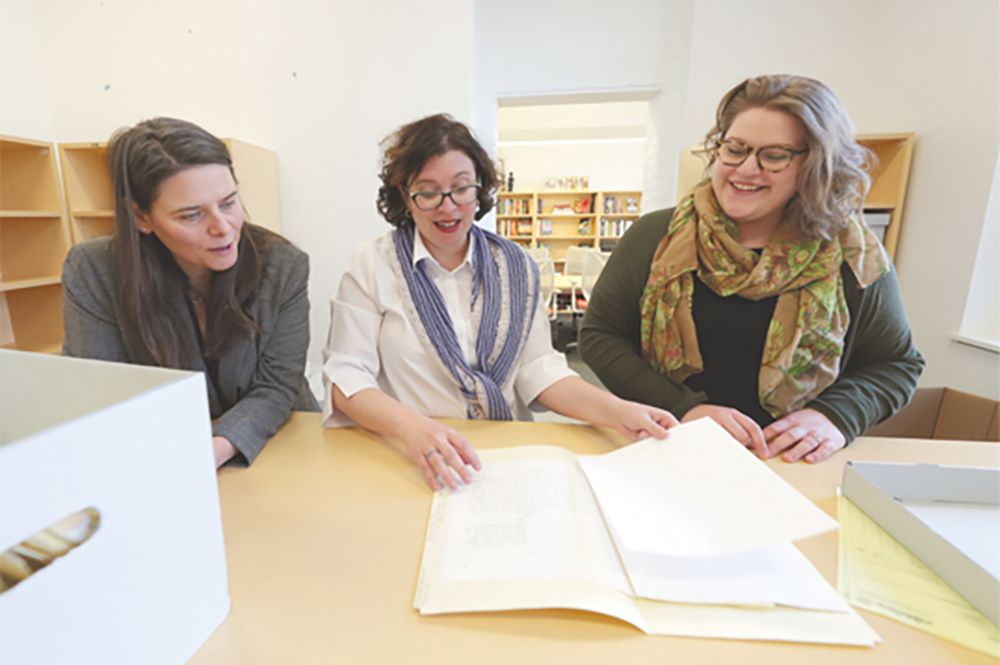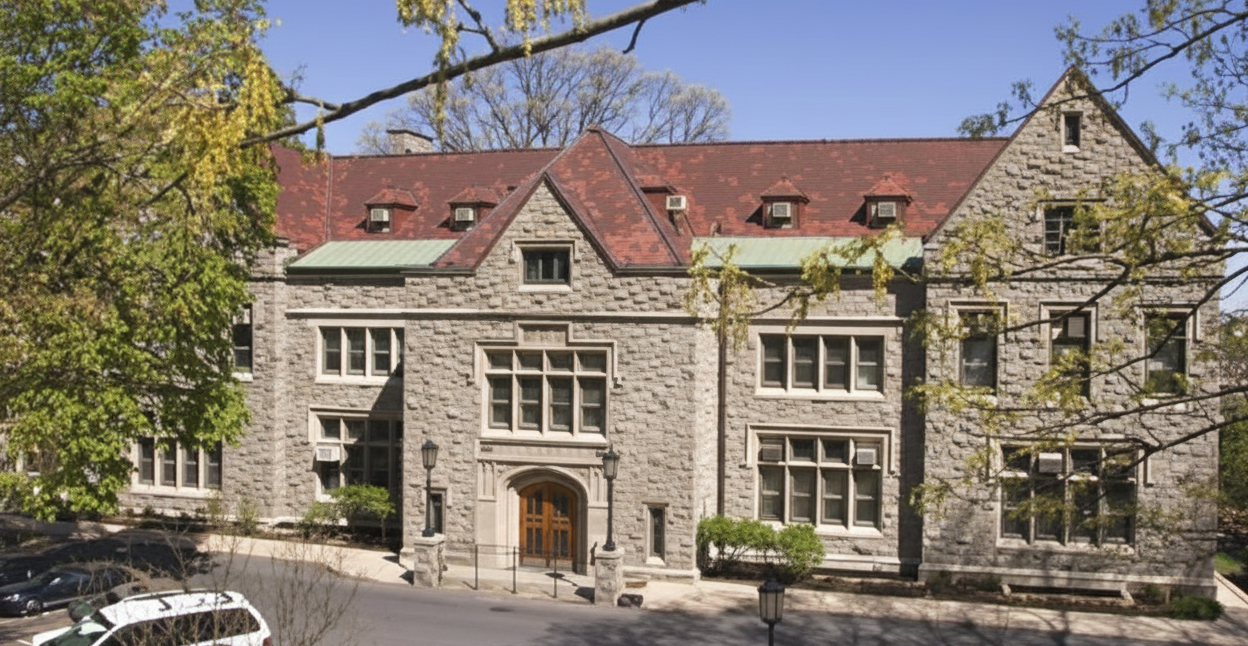Society for Medieval Feminist Scholarship Honors Suzanne Edwards with New Mentorship Award
Biennial award recognizes English professor’s extraordinary support of early career feminist scholars and her lasting impact on the academic community.
The Society for Medieval Feminist Scholarship (SMFS) has announced the creation of a new biennial honor, the Suzanne Edwards Mentorship Award, recognizing extraordinary mentorship of early-career feminist scholars. The award debuts this year with its namesake, English professor Suzanne Edwards as the inaugural recipient.
“Through her brilliance, generosity, and integrity, Suzanne has shown us what feminist mentorship can and should be,” the citation reads. “It is our honor to celebrate her by establishing this award in her name.”
The award’s creation was proposed by scholars Sarah Baechle of the University of Mississippi and Carissa Harris of Temple University and received unanimous, enthusiastic approval from the SMFS Advisory Board. In honoring Edwards, colleagues, students, and mentees shared overwhelming praise for her impact on the field of feminist medieval studies and beyond.
Edwards is widely celebrated for her intellectual generosity, her commitment to inclusivity, and her ability to merge rigorous scholarship with feminist praxis. Tributes describe her as a model of what a true academic community can and should be. Colleagues point to her scholarship’s meaningful engagement with Black feminist thought, her critical attention to whiteness, and her consistent efforts to build community across disciplinary and institutional boundaries.
Ed Whitley, professor and chair of Lehigh’s English department, called Edwards “an incredibly intelligent and deeply moral person” whose intellectual and ethical leadership shape both the Lehigh campus and her community. Ben Wright, University Distinguished Professor of religion, culture, and society, praised her for embodying “the ideals of collaboration and interdisciplinarity.”
Former students and junior colleagues echoed these sentiments, describing her mentorship as both transformative and sustaining. Many recalled how Edwards’ encouragement arrived unprompted, helping them navigate challenges in academia and beyond.
"Suzanne Edwards is one of the most brilliant minds I’ve ever had the privilege of learning from during my graduate education,” said Sarita Jayanty Mizin ’21G, assistant professor of English at the University of Wisconsin–Eau Claire. “She engages in dialectical feminist mentorship in ways that have supported [me] and many former students across a vast range of intellectual and personal growth. When I think of conversations with Suzanne, I’m reminded that no education is ever wasted.... It is a privilege to now consider Suzanne my friend and comrade in this considered life."
By creating the Suzanne Edwards Mentorship Award, SMFS hopes to spotlight this model of inclusive, community-building feminist mentorship and encourage future generations to carry it forward. The award will be given every two years, with an open call for nominations beginning in 2027.

Edwards’s research and teaching trace the long representational and intellectual histories that connect contemporary feminist and queer theory with medieval European literature. One focus of her scholarship, including her book The Afterlives of Rape in Medieval English Literature, examines how medieval literary and philosophical texts frame sexual assault, consent, and rape survival. A second focus considers medievalism—how and why the Middle Ages are retrospectively reimagined in service of present political and social concerns. She recently co-edited a volume on this topic, Women’s Restorative Medievalisms, with Dr. Matthew X. Vernon. She is also working on a new book project that explores how the medieval debate form frames encounters across differences — between bodies and souls, youth and old age, vices and virtues, men and women, Christians and Jews—in light of contemporary feminist theories of intersectionality and assemblage.
Edwards disseminates her research in traditional academic venues, public-facing formats, and collaborative creative projects. With Mary Foltz, associate professor of English, she co-directs the Gloria Naylor Archive project, which makes the author’s collected papers more accessible to scholars, teachers, students, and fans. She has also published personal essays on reproductive justice, work-life balance during COVID, and mothering with cancer for general audiences. In addition, she served as textual and interpretive consultant for Body and Soul: After the Plague, an original chamber music piece by Belmont University composer Mark Volker.
A recipient of Lehigh University's Early Career Award and the Lindback Award for Distinguished Teaching, Edwards teaches a wide range of courses in medieval literature and culture, law and literature, and gender and sexuality studies.

